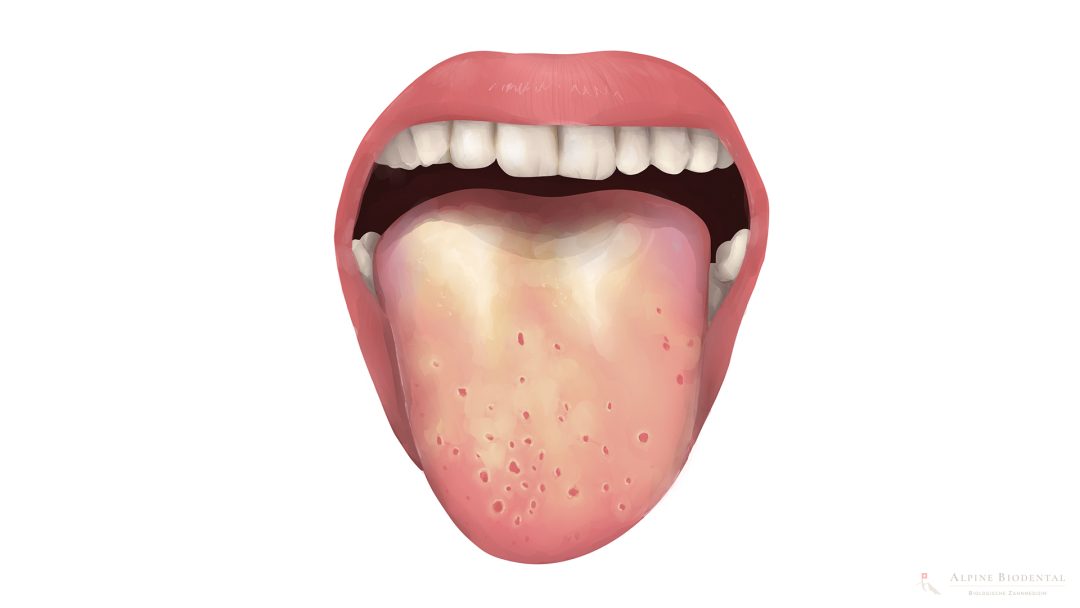Candida

Candida is a yeast fungus that normally exists in small amounts in the mouth and is typically harmless. In healthy individuals, it remains balanced with bacteria and the immune system, showing no signs of illness.
However, in some people, Candida can proliferate uncontrollably, leading to a Candida infection.
An infection with Candida is also known as oral thrush or candidiasis. There are various causes for the onset of the condition, and these causes can reinforce each other, creating an imbalance in the body.
Symptoms of Candida Infection in the Mouth
When the Candida fungus multiplies uncontrollably, it results in symptoms of a Candida infection. A whitish coating forms in the mouth, feeling furry and easily wiped away. Wiping it away reveals the underlying inflamed mucous membrane, which may be red and can bleed in some areas. Affected individuals often complain of bad breath and an altered sense of taste.
Causes of Candida Infection and what to do about it
A Candida infection is caused by an overgrowth of the Candida albicans fungus. The causes for this uncontrolled growth can be diverse (multifactorial) and mutually influence each other. Factors such as nutrition, the degree of toxicity, and oral bacterial flora all play a role.
Poor Oral Bacterial Flora
An oral bacterial flora with a high number of disease-causing microorganisms can favor the proliferation of Candida, leading to the development of oral thrush. It is advisable to build and maintain a healthy oral flora.
Incorrect Nutrition
A diet rich in sugar and gluten-containing foods promotes the formation of oral thrush. Try to eliminate foods with sugar and gluten from your diet.
Body Toxicity
People with high toxicity levels often suffer from uncontrolled Candida infections. It is advisable to undergo a comprehensive detoxification of the body under the guidance of an experienced physician.
Use of Antibiotics
Both chemical and natural antibiotics can negatively affect the bacteria in the body and should be avoided if possible. Bacteria play a crucial role as placeholders, preventing the proliferation of fungi or parasites. Antibiotic substances can disrupt the microbiome in the mouth and gut, allowing Candida to take over.
Suppressed Immune System
If the body’s own immune system is suppressed by medications or various therapies, the Candida yeast can multiply unchecked, leading to oral thrush.
Pressure Sores and Injuries from removable Dentures
Removable dentures can injure the gums and cause small wounds. Such wounds can favor the development of oral thrush or aphthous ulcers. Dentures should be adjusted to avoid pressure sores.
Further information
Here is additional information on the topic to provide you with a deeper understanding.